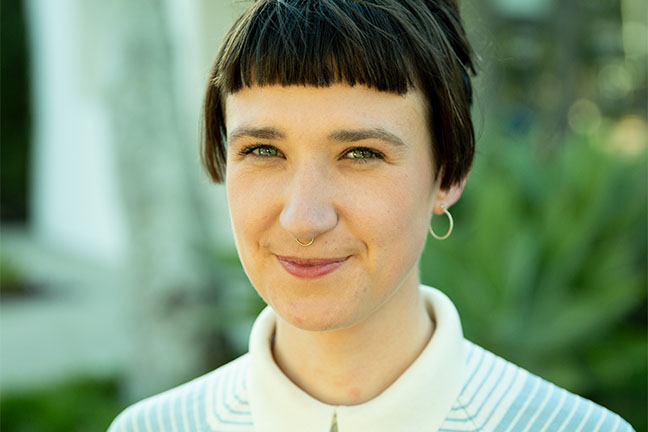A guest blog written by Alice Wroe after being in conversation with Hannah Silva about her book ‘My Child, The Algorithm’ at Greenbelt this summer.
Alice Wroe is XR Lead for Atlantic Institute where she serves a global fellowship of leaders committed to accelerating the eradication of global inequities. https://www.atlanticfellows.org/
At the beginning of the summer a message was sent from a friend that broke my heart a little. An email that should have been careful, crashed into my inbox blunt and flat. I realised later it was written using ChatGPT.
I felt uneasy, partly because artificial intelligence has some horrifying associations. I’m following the parents suing an AI company over the deaths of their children, I’m suspicious of the veracity of the “people” on my social feeds, and like many others, working in the justice space, I’m questioning whether this tech will be harnessed for good or just deepen the divides in society.
But I conceded, the email I received was harmless in intent, just a cleaner version of what my friend would have penned. I was embarrassed that a seemingly administrative decision felt like a personal betrayal – was I being too sensitive? I’m not alone in finding myself in frequent thought about AI, everyone keeps circling back. Is this thing on…? Am I using it right?
Over the summer I interviewed various authors at festivals about their books, which covered a range of topics, and yet we returned in every conversation to AI and trust. We talked less about the aforementioned global horrors, but took a quieter, more local tone, exploring AI and friendship.
I spoke to Andrew Smith about his book Devil in the Stack on the social connections he found amongst the coding community, and Tiffany Watt Smith, about her fleeting friendship recounted in Bad Friends, with an algorithm she didn’t quite know how to break it off with, should she log on to say goodbye?
But it was at Greenbelt, with its thematic emphasis on hope, that I started making meaning of my muddlings. At the Rebel Rouser stage, nestled into the woods, I spoke with Hannah Silva, who along with her toddler and an algorithm wrote a book on queer parenting and love. This book is a quiet gift to a society scared of AI, showing that more artful, softer ways of relating to this tech are possible. The lines written by the algorithm subvert our obsession with AI for efficiency. Rather than speed us up to get more done, these sections slow the reader down, prompting rumination on the surrounding text.
Greenbelters asked clever questions about the impact on climate and community, stretching my thinking around friendship and AI to a place of confidence. In an increasingly polarised social landscape, it feels vital to prioritize precision of interaction over pace. In our current conception of AI, we are obsessed with the former. This works well for rotas and project plans but not for people. Given the high energy and water consumption required, it seems somewhat of a violence to both the planet and the relationship to use AI for a few lines of correspondence.
What my summer of conversations made clear, particularly in discussing My Child the Algorithm, is that we don’t have to disregard Artificial Intelligence altogether, but alter the way we relate to it. There is a cost both environmentally and socially to using this technology, but there are times, when it’s live giving; when it elevates our thinking so radically that we can process pressing issues or dream kinder futures. If it liberates our thought processes rather than does our thinking, we might end up in a more hopeful spot.
During the discussion, Jeanette Winterson’s genius linguistic shift was brought up; call it Alternative Intelligence rather than Artificial. This reframe feels liberatory. Alternative Intelligence acknowledges its ability to move us into a different register of reflection. If we work with AI, instead of having it work for us, there is space for it to become a useful thought partner in a time of social and planetary fragility.

